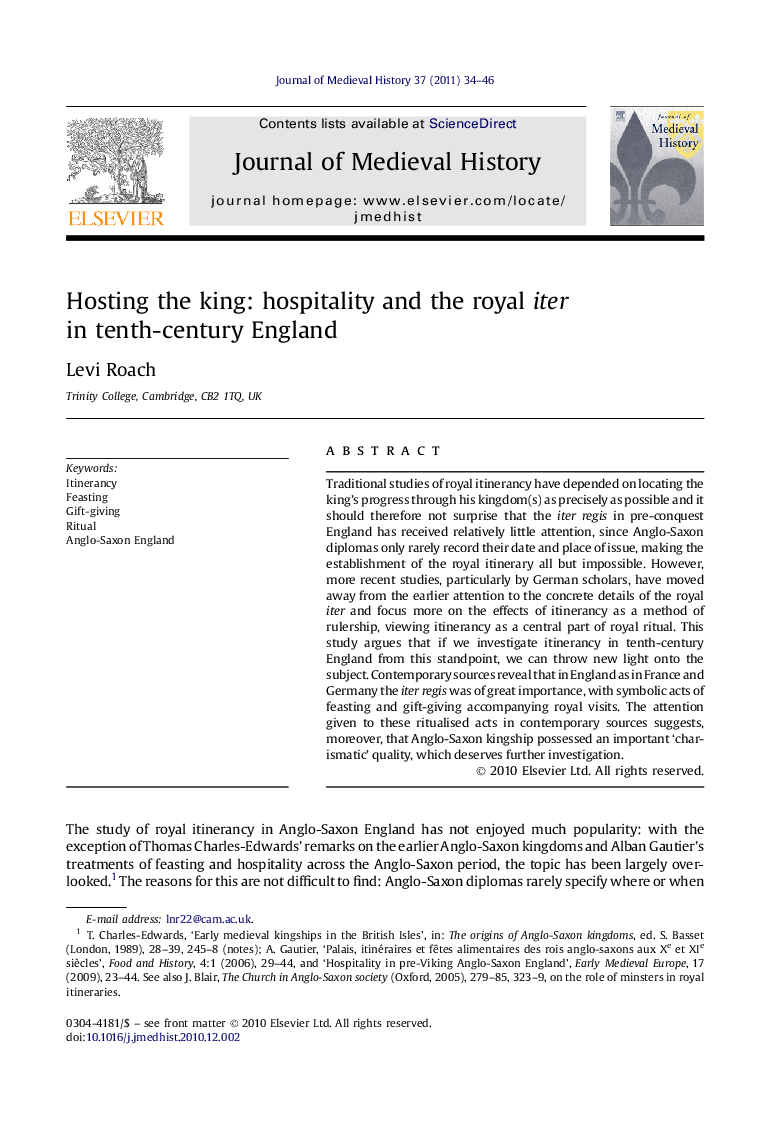| Article ID | Journal | Published Year | Pages | File Type |
|---|---|---|---|---|
| 1160013 | Journal of Medieval History | 2011 | 13 Pages |
Traditional studies of royal itinerancy have depended on locating the king’s progress through his kingdom(s) as precisely as possible and it should therefore not surprise that the iter regis in pre-conquest England has received relatively little attention, since Anglo-Saxon diplomas only rarely record their date and place of issue, making the establishment of the royal itinerary all but impossible. However, more recent studies, particularly by German scholars, have moved away from the earlier attention to the concrete details of the royal iter and focus more on the effects of itinerancy as a method of rulership, viewing itinerancy as a central part of royal ritual. This study argues that if we investigate itinerancy in tenth-century England from this standpoint, we can throw new light onto the subject. Contemporary sources reveal that in England as in France and Germany the iter regis was of great importance, with symbolic acts of feasting and gift-giving accompanying royal visits. The attention given to these ritualised acts in contemporary sources suggests, moreover, that Anglo-Saxon kingship possessed an important ‘charismatic’ quality, which deserves further investigation.
